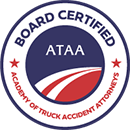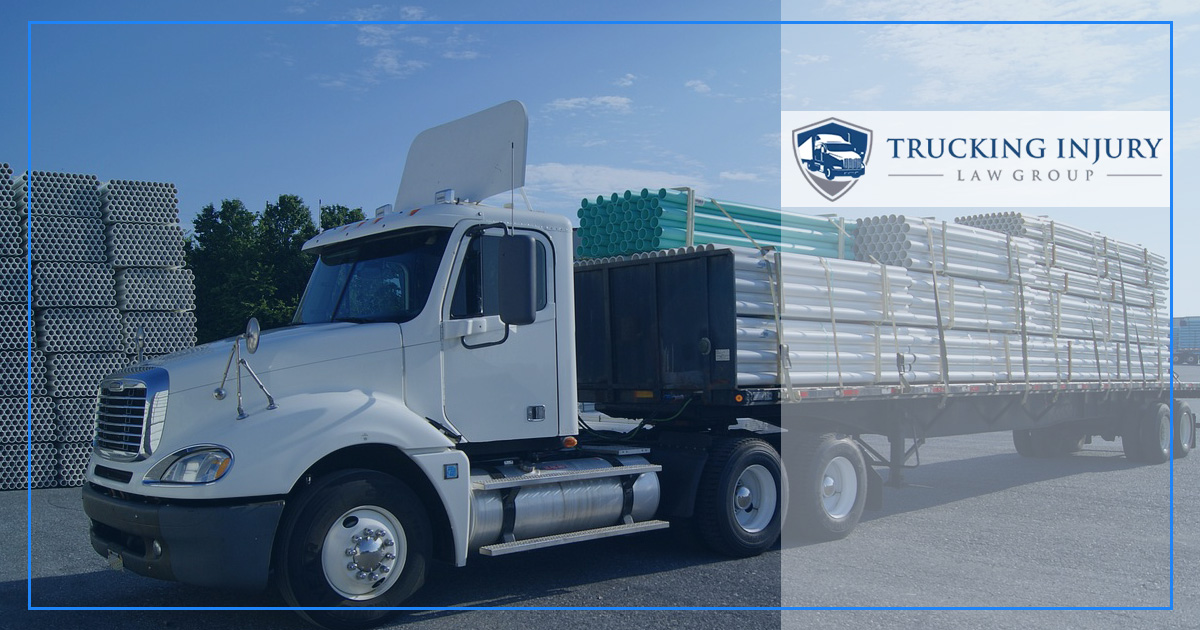Who Is Responsible for Correctly Loading Cargo in a Tractor-Trailer?
A recent semi-truck spill resulted in dozens of metal pipes falling off a rig and backed up traffic for 30 miles, according to the news site BakersfieldNow.com. Fortunately, no one was injured in the accident, but that isn’t always the case with crashes like these. There could be many reasons why an 18-wheeler accident occurs. When investigating this type of collision, it is important to find out who is responsible for correctly loading the cargo into a tractor-trailer.
Cargo Load Liability
When unsecured cargo is a factor in an accident, it is vital to determine who would be liable for loading that cargo in the first place. Along the shipment supply chain, there could be many individual workers and companies that might be held responsible for improperly loaded cargo, such as the following:
The Truck Driver
Every trucker is responsible for the cargo they transport. That begins with the driver ensuring that the cargo is securely loaded before heading out on the road. This doesn’t mean that the driver has to do the actual loading. However, they need to make sure everything is in place and secured according to federal and state regulations. When it comes to any type of cargo failure, it would be very difficult for a trucker to claim, “It wasn’t my fault.”
The Truck Loader
This is the person who works at the loading dock, warehouse, factory, or other work site who directly loads the cargo into the trailer. The loader could be one person or a team. That process can be accomplished by hand or by pallet forklift. Trucks can also be loaded by crane. Part of the loading process includes ensuring that anything that is placed into the trailer is secure and will not topple during transport.
The Trucking Company
A fleet company can also be held accountable for a collision or rollover accident if it fails to provide adequate training to the employees who are hired to load the cargo. The company might also be held liable if it doesn’t provide the right equipment, such as straps and braces, to secure the load.
The Securing Device Equipment Manufacturer
Another part of the shipment supply chain is the securing device equipment manufacturer. If a loading strap is rated to hold a certain amount of weight but fails to do so, it could be considered a product defect. That could mean the securing device equipment manufacturer would share in the liability for an accident caused by a cargo failure.
Cargo Regulations
The Federal Motor Carrier Safety Administration (FMCSA) has developed a comprehensive list of regulations for the trucking industry aimed at preventing accidents. In addition to rules regarding inspections, rest periods for truckers, and hazmat restrictions, the agency has also implemented restrictions for loading and unloading cargo. The following is a list of some of the violations most often cited by inspectors regarding the loading of cargo:
- Inappropriate tie-down usage: The FMCSA requires proper tie-downs to be used to secure cargo during transport. Those tie-downs should prevent the cargo from moving, shifting, or falling off during transportation. Those rules apply to open and closed trailers.
- Poor balance: Stability is a crucial factor for loading a tractor-trailer. The cargo needs to be properly balanced, with the weight evenly distributed throughout the load. When you combine a cargo imbalance with a sharp turn or steep incline, you create the perfect scenario for an accident.
- Damaged securing devices: The devices used for securing cargo should not be frayed, worn out, or damaged from previous use. If those devices break during a long haul, it can trigger a catastrophic accident.
- Improper use of securing devices: Truck drivers and cargo loaders need to know how to properly use securing devices on all kinds of loads. Even a brand-new, functioning device can still fail if it is improperly used. The truck driver is responsible for checking those devices at every stop along their route.
- Oversized loads: A truck carrying oversized loads needs to obtain a permit. This does not absolve the truck driver from liability in an oversized load accident, but it does put the trucker and company they work for on notice that they must take extra precautions with that shipment.
Uncovering Negligent Actions
There should never be any guesswork involved in cargo loading. The FMSCA provides an online portal for weight and dimension restrictions for each state. Truck drivers should use those resources when planning their routes. All pertinent information about the cargo’s weight and size will be part of that shipment’s bills of lading (BoL). That information will become a crucial piece of evidence in any personal injury lawsuit where cargo size is a factor.
The Trucking Injury Law Group has years of experience gathering that type of documentation to provide a strong case for their clients seeking compensation from a trucking accident. We represent truck accident victims in Washington, Oregon, Idaho, and Nevada who are dealing with medical expenses, lost wages, and other damages from a collision with an improperly loaded truck. If this is a situation you’re dealing with, then call today to discuss what happened and to plan the next steps in your case. You don’t have to deal with the aftermath of a trucking accident alone.






